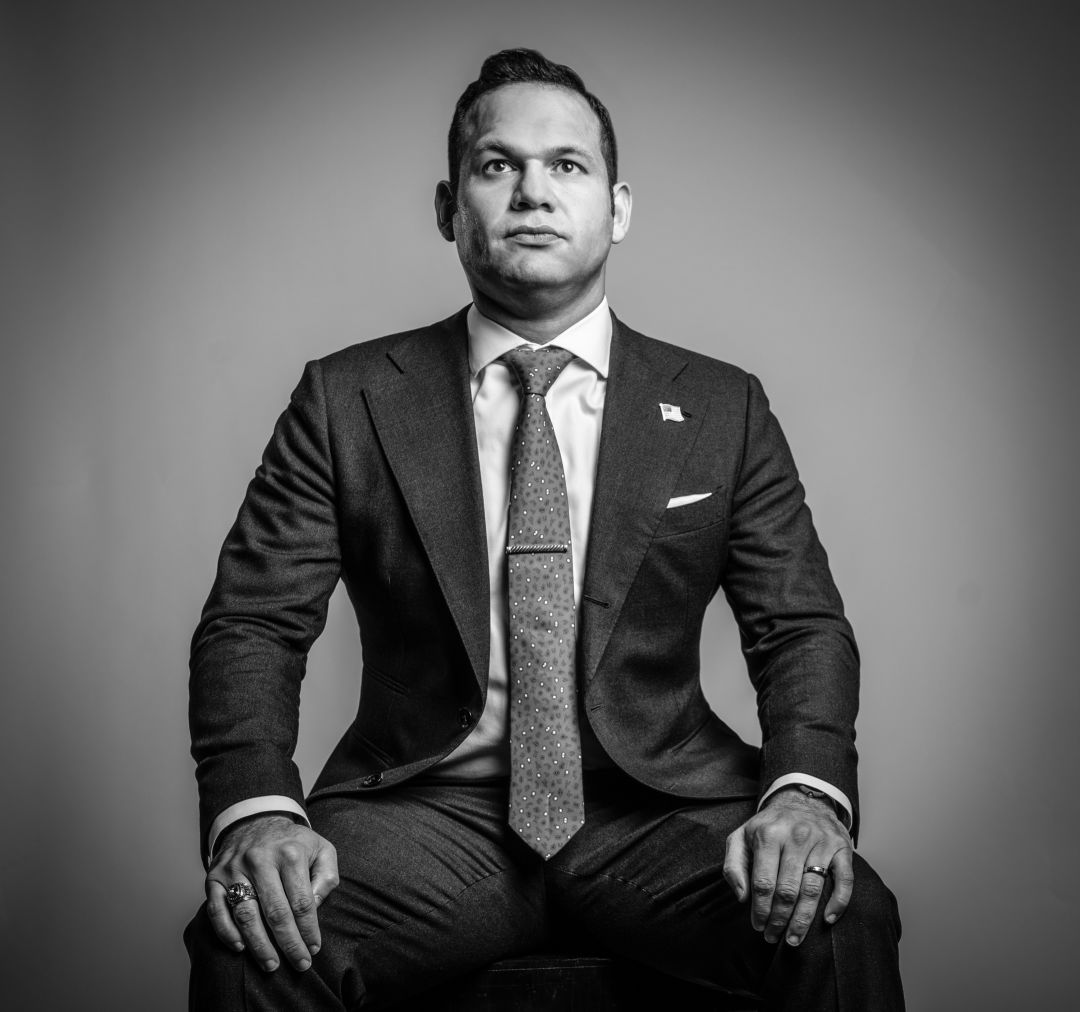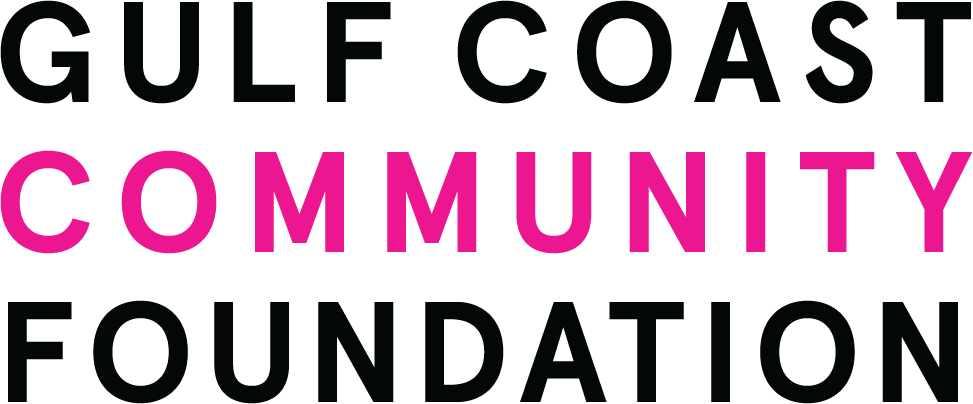City Commissioner and Lawyer Erik Arroyo on His Journey to Success
This article is part of the series Listening to Diverse Voices, proudly presented by Gulf Coast Community Foundation.

Erik Arroyo
Image: Barbara Banks
At 31, City Commissioner Erik Arroyo became the youngest and first Hispanic mayor in the history of the City of Sarasota after the commission unanimously selected him for the position. Although being the mayor of Sarasota is largely a ceremonial role, he served as a sort of city spokesperson and led commission meetings. Now 33, he’s still immersed in local politics as Sarasota's District 3 city commissioner, representing the general area east of downtown, including large tracts of Fruitville Road and Ringling Boulevard. He says he's quickly chipping away at a list of 132 goals he aims to achieve to better the City of Sarasota before he steps down.
Away from the dais, Arroyo is an attorney, and in April, he left a former firm to start his own, Arroyo | McArdle, which specializes in business law and estate planning. Born in the Dominican Republic, where he says hot water and air conditioning were considered out-of-reach luxuries, he was the first in his family to graduate from high school when he graduated from Sarasota's Riverview High School, where he also met his future wife. He then earned his undergraduate degree at the University of Florida and attended Florida A&M University to study law. He also played chess, including in an international chess match against Sarasota's sister city of Tel Mond, Israel.
This interview has been edited for length and clarity.
Where are you from originally and when did you move to Sarasota?
"I was born to a single mom in Santiago, Dominican Republic, who dropped out of high school to have me. She came to Sarasota to become a citizen first, while I stayed behind with my grandparents, who lived in San José De Las Matas. Once she got her citizenship, I joined her when I was 16 years old. The last time I was there was 17 years ago. I still have family there, like my dad, but we don't have a strong relationship. My 3-year-old daughter and 9-month-old son are learning Spanish from my mom and me—she helps us out a lot."
What was it like to move here at first?
"That was tough. It was such a culture clash and all so different. My mom sold it as the place to be by talking of luxurious lifestyles—everyone has a car and air conditioning, she would say—all the little things you might take for granted here that we didn’t have growing up. At school, there were more cliques than in the D.R. There, you weren't defined. People were poor. Here, it was jocks, nerds...and I had to get used to that.
"But I grew up idolizing America and it was great. I still think America is the greatest place for upward mobility. I couldn't have been a lawyer or done any of the things I've done here in the D.R."
Did you experience any discrimination?
"There were comments here and there, but I wouldn't attribute it to racism. People were just ignorant. They just didn't know. Other Latin kids here weren’t from the D.R.; they were mostly from Puerto Rico or elsewhere, so it was really just me."
Has being Hispanic ever gotten in the way of opportunities here? Or given you an advantage?
"It’s all a mindset. I know people who came from the D.R. and were poor and yes, it’s hard, but sometimes they use it as an excuse not to do better. I started this race behind the rest but caught up. I'm just running twice as fast. I feel nothing that life has thrown at me can faze me. My heritage has been an advantage. There aren’t a lot of lawyers who are fluent in both languages here. It also helps in my role as a commissioner to connect with the greater community."
What did you do before becoming a lawyer?
"I graduated law school in 2014 but I was still working at Walgreens. I started practicing in 2016. I was a pharmacy tech and worked my way up into management."
What made you want to become a trust attorney?
"I said I was going to help people and my first 250 wills would be free. A few people took me up on it, and it got me started. I handle a lot of business law, estate planning and trusts. I hated personal litigation and injury and chasing ambulances even though it was more money. I give people peace of mind. It’s a happier type of law. Clients tell me about their families and I get to know different generations. You get to help people save on taxes, too, which is great because I learn from that, too."
What made you want to join the city commission?
"I just noticed that a lot of things were going unaddressed in the community and some people running for office were coming in from out of the state. Good for them, but they weren’t really representing a neighborhood or trying to better the city and would concentrate monies and efforts on just downtown. Meanwhile, there are dirt roads by Beneva and Fruitville. East of 301, there’s no art component. It’s all downtown. I represent District 3, so I wanted to pave more roads, get more art initiatives and start more projects."
What is it like to be a city commissioner?
"It’s the most frustrating and rewarding thing in my life. I love it, but sometimes, people will just hate you for who you are. When politics get involved, it can get challenging, even though it’s nonpartisan decision-making. There’s no political way to address traffic concerns, for example."
What have you learned from the role?
"So much. It’s like a giant ship. No one commissioner can make something happen swiftly, so you don’t have a tyrant leading the way, so things take time with processes and layers, and you learn how to maneuver through that. I learned a lot about trees, the noise ordinance and all the decibels. You’re always learning and you meet some impressive people in this city. We have amazing celebrities and CEOs, so you have to be at the top of your game because they’re paying attention and know their stuff and stay involved."
What’s front of mind for city residents?
"Workforce housing so people can live in town and work in town at a price they can afford. That way we don’t have a labor shortage, and we have less traffic, too. Think of 9,000 employees at Sarasota Memorial Hospital—that’s a lot of traffic. Our schools wouldn't have an exodus of staff, Ringling College graduates could stay in town. We need permanent affordable housing units and rapid rehousing services."
What are you proud of as a commissioner?
"On my first day on the commission in November 2020, I met with the city manager. I had a list of 132 goals and we’ve accomplished more than 90. It included a new chief of police, a free downtown trolley that goes to Lido Key, outdoor dining as a right, food trucks, back-in parking, electric bikes and lowered property taxes. We had a record investment in public safety with more officers. One of my favorite [accomplishments] is the right to build additional dwelling units. We created a click-to-fix app that allows you to take a picture of a pothole and submit it to generate a work order. We made a complete street on Ringling Boulevard and eliminated the sustainability department. They had no direction. It was just money being spent and the employees were placed in other positions and didn’t lose their jobs. We approved the Bath and Racquet project, Selby Gardens, the Bay Park project, and established a conservation easement on Bobby Jones. We lit the bridge for Hispanic Heritage Month. I want to have a killing shelter ban and renegotiate Marina Jack’s lease. I want to beautify the back alleys downtown. I'd like a public awareness campaign on homelessness and to create an app to allow people to donate and put a stop to panhandling. I think Sarasota is stronger than ever."
How do you feel about all the new people moving here?
"We want to be welcoming, but we also want to make sure we grow responsibly. I’d also like people who move here not to shut the door behind them. Residents didn’t want to see the Mark condos go up, but then people living there were against other new developments. That’s just one example, but we’ve seen that attitude a lot at meetings."
What would you say to other Hispanic residents who are struggling?
"Step out of your comfort zone and you’ll learn a lot. I did many unpaid internships. From Incredible Adventures on Siesta Key to one with Burgess Harrell Mancuso Olson & Colton I did in 2007.
"Get involved. We always have volunteer opportunities and one person can make a difference. Bring something to the commission we never thought about, because we listen. I encourage [other Hispanics] to run for office. You'll meet amazing people, get exposed to how systems work and learn so much you’ll use the rest of your life."




